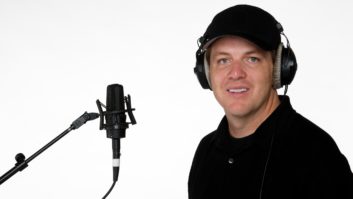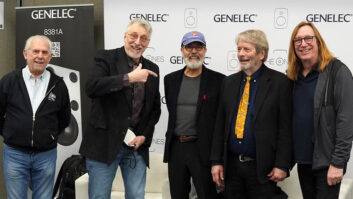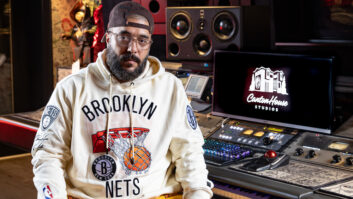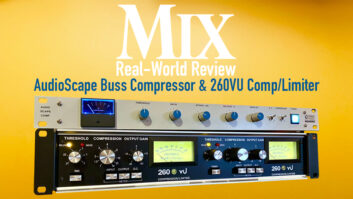In a magazine that targets people who are already “in the biz,” it is important to acknowledge the future geeks-in-training, owner/operators, managers and engineers who enter our industry and eventually find or create a niche. Some are self-taught, others go to school, and there are those who change majors mid-stream, starting off as an engineer and later getting into geekdom — the more lucrative (and mostly recession-proof) maintenance path. In some cases, the opposite is also true: Job-seeking engineers with a strong technical/repair background will find that studio doors are wide open for candidates with such skills.
So how might a geek “wannabe” train for a career in the multimedia environment? The last two words are clues. It’s not “just” about audio anymore, but about the integration with other disciplines. Is school an option? Considering the range of technical topics — from the current interest in retro technology to computers and networking — “recording schools” face a serious challenge. In fact, it is the very nature of geek-types to pursue their own course of study, especially with computers being integral to all processes.
All institutes of knowledge must constantly evolve to remain in sync with their respective industries, anticipating student needs and offering choices — all the while “maintaining” the fundamental concepts that transcend technological advances. Setting aside the needs of technical personnel for a moment, there are many self-taught users who now have all the right questions and really should take a little time to fill gaps in their knowledge. There is nothing wrong with being self-taught; you hit the ground running and hopefully make no life-threatening mistakes. But once in business and in debt, the need to survive sometimes precludes taking time out to learn. The need for quick information is obscured by the glut of misinformation and begs for an interactive class, a book or an e-subscription that can dispel some of the more obnoxious audio wives tales.
APPLICATION-SPECIFIC
Twenty years ago, multiroom facilities with an in-house technical staff were the norm. In many cases, a mentoring system was also in place. All of this diminished with the arrival of the project environment, nudging someone with an entrepreneurial inclination into the freelance repair biz. In the ’80s, I became one of the many “geeks with tweaks in sneaks with tools on wheels and no squeaks.” The difference, then and now, is serviceability. Then, even affordable analog consoles were modular. Now, the “modules” are beneath a common front panel so that a considerable amount of disassembly is required to change simple parts or clean faders.
Paul Lehrman wrote of the challenges of the repair business back in the March issue’s “Insider Audio.” Mass production makes some products “disposably” affordable. Rather than pay the price of repair — the bulk of which is labor — people are more likely to tolerate a few problems, postponing service until a replacement can be justified. This is not a career path for any service technician with overhead. Such products are like old cars that are donated to high school shop classes for a tax deduction.
Where once a handful of op amps, logic ICs, transistors and magic capacitors might cure common ailments, Large-Scale Integration (LSI) and Application-Specific Integrated Circuits (ASICs) put a new obstacle in the path for all product categories. Not only are special tools required to remove these surface-mount devices, there are too many expensive parts to keep in stock. All of these issues raise the question, “Exactly what can or should be taught?”
HATS ‘R’ US
New York, like other large metro areas, has no shortage of technicians and experiences to train them. But not all schools have access to people with such a knowledge base. The convenience of on-site tech support brings a fast response to problem solving. Without it, a studio must rely on at least one technician who is familiar enough with the facility to help diagnose by phone. If not, the job falls to whomever on staff is wearing “the hat,” and no one likes the transition from creative mode to geek mode — certainly not in the middle of a session!
Whether you’re an engineer, studio owner or technician, the key to success is to be overprepared. In the most organic sense, this means understanding your gear and having it installed in the best way possible within your budget. Understanding signal flow and having the ability to patch around a problem does not require a degree in electrical engineering. It does require that both analog and digital patchbays can be ruled out as possible suspects 99% of the time. (This is not necessarily the case with user-assembled, off-the-shelf patchbays and wiring harnesses.) In fact, the essential course of study for geeks and sonic artists alike is the Fine Art of Troubleshooting. In the event of a crisis, maintaining a calm demeanor and comforting bedside manner will inspire co-workers, as well as soothe the clients. This suggests that a psychology course might also be in order.
TOOLS OF THE TRADE
Worth repeating, basic troubleshooting skills apply to users and geeks alike. The best analogy is a modular analog console. Got a dead module? You can patch around it, swap it with another or swap any ICs that are in sockets. Beyond this, essential test equipment includes a multimeter, soldering iron, tone oscillator, oscilloscope and — of course — the knowledge of how to use them.
To justify adding a specific course of study, educators must see or create student interest, itself a moving target. People don’t walk out of any school automatically employable unless they went in curious, asking plenty of questions and expect to work for a living. The geek path is not paved for your convenience, but there should be classes to smooth the road for users who can help themselves — basically anyone who has ever needed to upgrade software, replace a fader, install a module or update a drive. This means knowing how to use a screwdriver, observe static precautions, and deal with the many varieties of miniature connectors and wiring harnesses — all without doing further damage.
One step above troubleshooting is basic electronics, which, as part of a hard-core “audio” maintenance program, is either included, a prerequisite or integrated with equipment-specific maintenance challenges. Soldering skills and good vision are more important than ever. Of course, most geeks-in-training should already have their feet wet before jumping into the electron pool. A little experience before entering any school will help aspiring students get the most from their classes. If recognized by the instructor or guidance counselor, course selection can be tweaked to student needs.
In order to continue this theme throughout the coming year, educators, students and employers should e-mail [email protected] with their challenges, thoughts and needs. I look forward to your comments.
Eddie Ciletti answers good, bad and ugly questions at
www.modernrecording.com
and
www.tangibletechnology.com, sometimes for a small fee.





